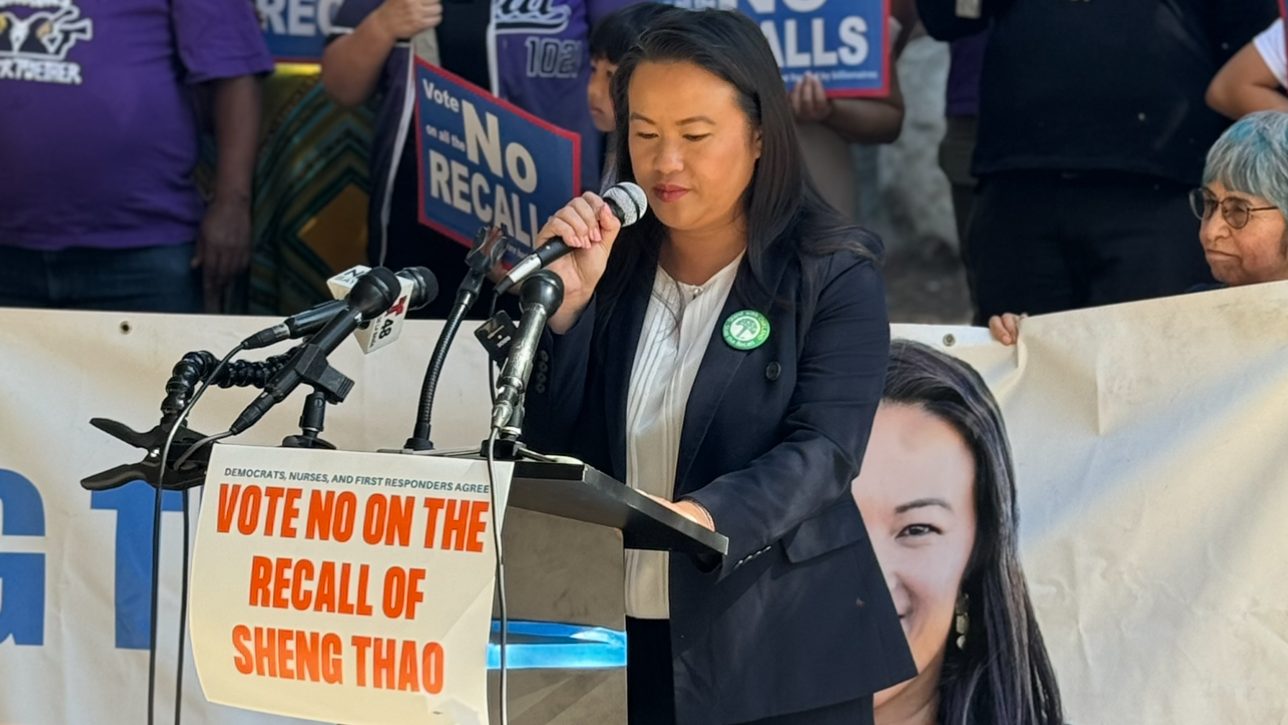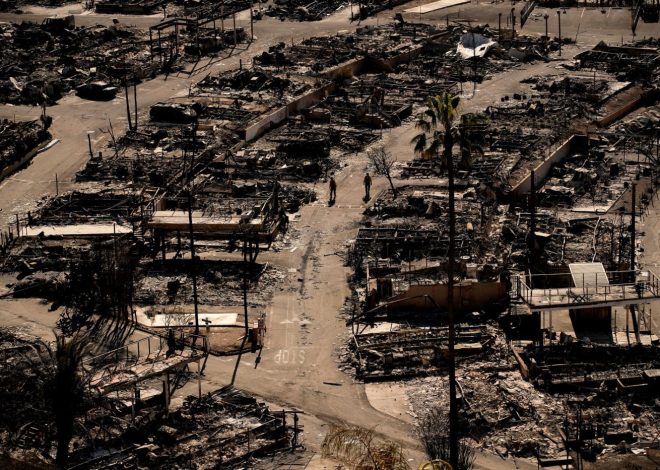
In an Oakland election that revolves around crime, the last month has provided an October surprise
OAKLAND — The Nov. 5 election in this city is shaping up to be as consequential as they come, with five council races and a recall of Mayor Sheng Thao at stake, but the run-up has been unseasonably quiet — at least in one crucial way.
Police had investigated just one crime in Oakland as a homicide between Oct. 1 and Oct. 27, but that person was shot in September and died this month — marking a staggeringly peaceful month just before an election that has put residents’ concerns about crime front and center.
Research has shown that warmer weather is often correlated with higher crime rates, but record-high temperatures in Oakland at the start of this month so far do not appear to have tracked with more violence.
The statistic contributes to a year of improvement in Oakland, where homicides from Jan. 1 to Oct. 27 have fallen by 32% from the same period of time last year, according to Oakland Police Department data.
Year-to-date crime overall is down 37%, per OPD data, with burglaries having declined by 55%, robberies by 24% and aggravated assault by 15%. Non-fatal shootings in an occupied home or vehicle had also dropped by 32%.
The data is significant at a time when much of the city is clamoring for change. All candidates for City Council, especially newcomer candidates challenging for incumbent seats, have made public safety a central focus of their campaigns.
The campaign seeking to remove Thao as mayor, meanwhile, has focused intensely on crime — leading some of its most notable supporters, such as the local chapter of the NAACP, to forego mention of other woes in Oakland, such as the city’s bleak financial outlook.
Thao’s critics have pointed to the city’s failure last year to apply for a public-safety grant worth millions and her firing of police Chief LeRonne Armstrong as causes of a crime increase in 2023.
But this year’s data, especially the numbers from this month, led the mayor’s anti-recall campaign to declare Tuesday that her “comprehensive public safety strategy is working.”
“By reinstating proven programs like Ceasefire, strengthening partnerships with law enforcement agencies including OPD and (California Highway Patrol), and investing in modern public safety technology, we’re seeing meaningful results for Oakland residents,” the campaign said in a statement.
Dylan Qin, 8, takes part in a press conference outside of City Hall calling for Mayor Sheng Thao to resign in Oakland, Calif., on Sunday, June 23, 2024. Efforts to remove Mayor Thao from office are headed to the Nov. 5 election. (Jane Tyska/Bay Area News Group)
In a series of interviews ahead of next week’s election, the mayor has pointed to the revival of Ceasefire — an anti-violence program that lost resources during the pandemic — as the reason for a drop in crime.
Oakland may also be catching up to other relatively large California cities that rebounded after crime surged during the pandemic. San Francisco, San Jose, Los Angeles and Long Beach all saw crime level off in 2023 from previous highs.
Thao, meanwhile, has championed the city’s investment in its 911 system, though the city’s emergency response times still lag well behind the minimum California expects for state funding eligibility.
Still, the mayor’s opponents have preferred to hammer her on the crime issue before addressing any of the city’s other problems.
“Oakland is simply not safe,” local NAACP chapter President Cynthia Adams said earlier this month at a news conference endorsing the recall, though she also declined to comment on the city’s sale of its Coliseum share, which still has not delivered the bulk of its promised revenue.
Voters have also expressed frustrations, though they acknowledge the city’s conditions are improving.
Select portions of a poll released earlier this month by the Oakland Metropolitan Chamber of Commerce showed 64% of the city’s voters favor removing Thao as mayor, with only 31% siding against the recall.
But in its key findings, the same poll indicated that Oaklanders feel the economy is improving and the city is safer than it was in 2022, though they also want more police officers on the street.
The chamber’s executives declined to make the entire poll — which sampled 720 city voters at a +/- 3.7% margin of error — available to this news organization, limiting a full analysis of its results.
With the election less than a week away, the recall campaign against Thao — which was bankrolled almost entirely by a Piedmont hedge-fund executive — offered a mixed review of the past month.
“We are always happy to hear things are getting better in the city that we love,” said recall spokesperson Seneca Scott, a former mayoral candidate who has gained an internet following for labeling Oakland as a version of the fictional Gotham City for its crime woes.
“Nothing changes the fact that Sheng Thao has brought mass destruction, chaos, disorder and financial ruin to Oakland,” Scott added.
Shomik Mukherjee is a reporter covering Oakland. Call or text him at 510-905-5495 or email him at [email protected].


